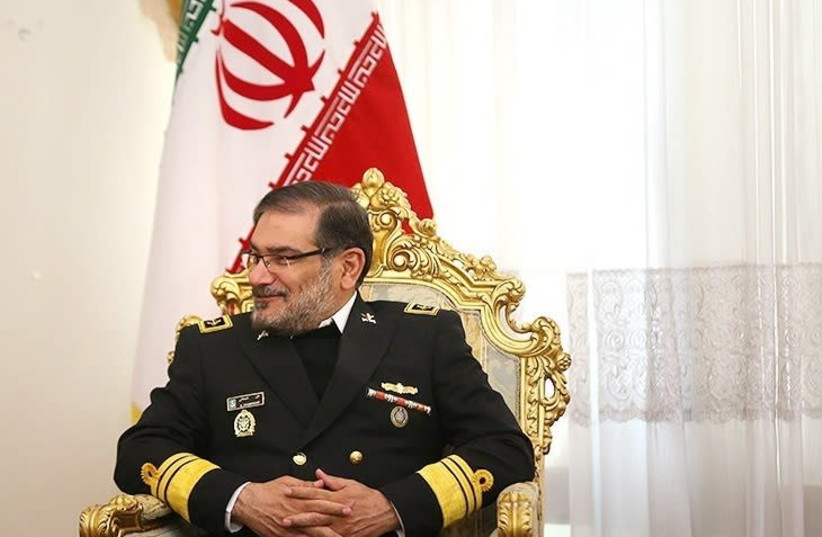So useful to have a conduit to the enemy’s private thoughts…
[KhaamaPress] Iran’s Foreign Minister stated that Western powers engage in talks because they lack the capability to strike Iran’s nuclear facilities militarily.Iran’s Foreign Minister, Seyed Abbas Araghchi, recently stated that the primary reason Western nations engage in negotiations with the Islamic Theocratic
Republicis their inability to employ military force against Iran’s nuclear facilities. Speaking on May 15, 2025, during the 36th Tehran International Book Fair, Araghchi emphasized that Iran’s defensive capabilities and missile prowess provide leverage in diplomatic discussions. He argued that if Western powers could neutralize Iran’s nuclear infrastructure militarily, there would be no necessity for dialogue. Instead, Iran’s negotiators approach talks with the confidence derived from their military strengths.
In recent developments, U.S. President Donald Trump
...His ancestors didn't own any slaves...
announced that the United States is nearing a nuclear agreement with Iran. During a visit to Doha, Trump indicated that Iran
 ...a theocratic Shiite state divided among the Medes, the Persians, and the (Arab) Elamites. Formerly a fairly civilized nation ruled by a Shah, it became a victim of Islamic revolution in 1979. The nation is today noted for
...a theocratic Shiite state divided among the Medes, the Persians, and the (Arab) Elamites. Formerly a fairly civilized nation ruled by a Shah, it became a victim of Islamic revolution in 1979. The nation is today noted for spontaneouslytaking over other countries' embassies, maintaining whorehouses run by clergymen, involvement in international drug trafficking, and financing sock puppet
militiasto extend the regime's influence. The word
Iranis a cognate form of
Aryan.The abbreviation
IRGCis the same idea as
Stürmabteilung (or SA).The term
Supreme Guideis a the modern version form of either
Duceor
Führeror maybe both. They hate
had "sort of" agreed to the terms of a new deal, which includes halting uranium enrichment for up to three years. In exchange, Iran seeks the lifting of economic sanctions and guarantees against future U.S. withdrawal from the agreement. However,
a clean conscience makes a soft pillow...
significant gaps remain, particularly concerning the extent and timeline of uranium reduction and the destination of the remaining stockpile.
The fourth round of indirect negotiations between Iran and the United States took place in Oman, with senior representatives from both sides participating. Iran’s Foreign Minister Araghchi expressed cautious optimism, stating that the talks were constructive and held in a calm and respectful environment. He noted that both sides are committed to reaching a fair and honorable agreement based on equality. The discussions focused solely on Iran’s nuclear program, with Iran insisting that its defense capabilities, including its missile program, were not on the agenda.
President Trump has emphasized that the central demand of the proposed agreement is that Iran cannot possess nuclear weapons. While expressing a preference for diplomatic solutions over military action, Trump has also warned that substantial gaps remain in the negotiations. Iran has expressed willingness to limit uranium enrichment and accept inspections in exchange for the lifting of economic sanctions. Adviser Ali Shamkhani indicated Iran’s readiness to permanently renounce nuclear weapons and reduce its stockpile of enriched uranium to civilian-use levels. Nonetheless, disagreements persist on key issues, including the extent and timeline of uranium reduction and the destination of the remaining stockpile.
Despite the progress in negotiations, tensions remain high. Trump has threatened further sanctions and military action if diplomacy fails. Iran has warned that it could expel UN nuclear inspectors if the United States does not meet its demands. The situation remains complex, reflecting deep mistrust and Iran’s advancements in its nuclear capabilities since the U.S. exited the 2015 nuclear agreement.
The ongoing negotiations between Iran and the United States represent a critical juncture in international diplomacy concerning nuclear non-proliferation. While both sides have expressed a willingness to reach an agreement, significant challenges remain, particularly concerning Iran’s uranium enrichment program and the lifting of sanctions. The outcome of these talks will have profound implications for regional stability and global security.

 ..not a terrorist organization, even though it kidnaps people, holds hostages, and tries to negotiate by executing them,...
..not a terrorist organization, even though it kidnaps people, holds hostages, and tries to negotiate by executing them,...
 ..not a terrorist organization, even though it kidnaps people, holds hostages, and tries to negotiate by executing them,...
..not a terrorist organization, even though it kidnaps people, holds hostages, and tries to negotiate by executing them,... ..not a terrorist organization, even though it kidnaps people, holds hostages, and tries to negotiate by executing them,...
..not a terrorist organization, even though it kidnaps people, holds hostages, and tries to negotiate by executing them,... ...every time you hear the phrase
...every time you hear the phrase  ...a theocratic Shiite state divided among the Medes, the Persians, and the (Arab) Elamites....
...a theocratic Shiite state divided among the Medes, the Persians, and the (Arab) Elamites.... ...The nation is noted for
...The nation is noted for  [JPost]
[JPost]  ...the occupiers of Greek Asia Minor...
...the occupiers of Greek Asia Minor...